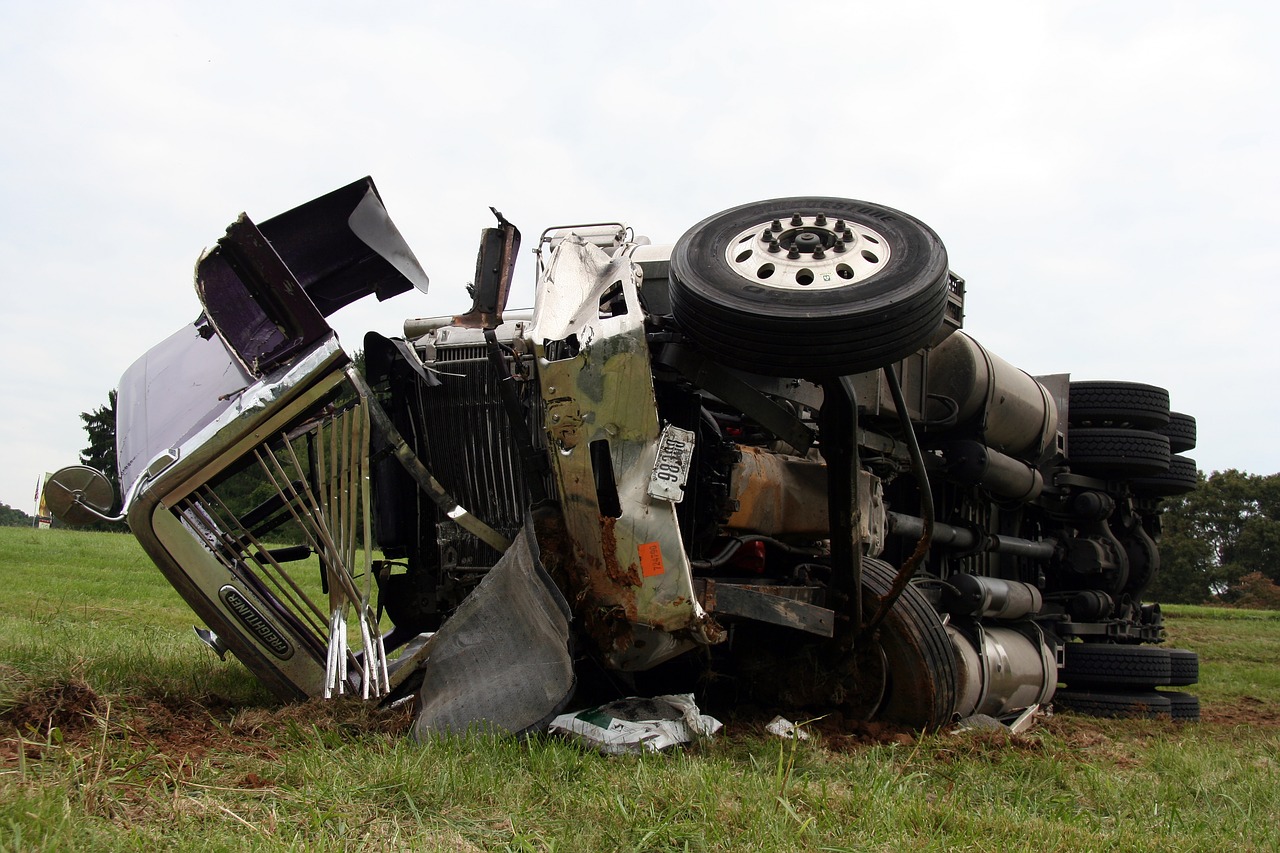Drivers face constant risks on the road from other vehicles, cyclists, pedestrians, and other distractions. In California, drivers are encouraged to exercise more caution behind the wheel. As of 2017, California has 14.6 million registered vehicles and holds the record for having the second-highest number of roadway miles in the US. Since it’s also close to the Pacific Ocean and two neighboring countries, the state is a primary gateway for international trade, which adds to the overall traffic situation.
Unlike cars, trucks and big rigs involve the large scale movement of goods. Accidents that involve freight-bearing trucks can come with various hazards, like chemical spills. That’s why it helps to understand the common causes of truck accidents and what you should do at the scene after the incident.
How Often Do Truck Accidents Occur?
Data from the Insurance Institute for Highway Safety (IIHS) states that there were 4,102 casualties in large truck accidents in 2017. Of the recorded fatalities, 17% were truck occupants, 68% were car passengers, and 14% accounted for the deaths of pedestrians, motorcyclists, and bicyclists. Overall, the number of casualties from large truck accidents was 30% higher than it was in 2009.
Large commercial trucks are one of the most dangerous vehicles on the road, and driving one is considered one of the most common jobs in California. The state is also home to Highway 99, which is regarded as one of the deadliest roadways in the country.
Identifying the Party at Fault
A majority of the casualties in truck crashes are passengers in the smaller vehicle. The main reason behind this is the vulnerability of passenger cars. Trucks are taller and heavier, resulting in vehicles underriding trucks during accidents. And depending on the circumstances, any of the following could be at fault:
- The cargo supplier – The goods the truck was carrying could be a contributing factor to the accident. For instance, the materials could be unsafe for transport, or its boxes were not properly loaded, throwing the truck’s weight off-center.
- The trailer company – Sometimes, an at-fault vehicle could have a trailer section separate from the truck. When this happens, the owner of the trailer company could be held liable for the accident due to poor trailer maintenance.
- The mechanic or technician – If an operational failure with the truck led to an accident, an investigation into the person or garage responsible might ensue. If the accident was caused by negligence, the garage or mechanic might be included in the lawsuit.
- Government agencies – A lot of factors can come into play during a crash, including defective traffic lights, poorly maintained roads, and missing signs. As a result, government agencies could get named in a traffic accident lawsuit.
Preventing Truck Companies from Avoiding Liability
In the past, trucking operators would avoid liability for accidents by distancing themselves from the driver, vehicle, and equipment. For instance, the trucking company will obtain all the permits needed to operate the large truck but leases equipment, tractors, and trailers from the “owner/operator” instead. Moreover, the company hires drivers as independent contractors from the owner to distance themselves further from possible accident liabilities.
So if one of the trucks in the company gets into an accident and gets sued by the victim, it can argue the following:
- The driver isn’t the trucking operator’s employee and is, therefore, not liable for the driver error, or
- The trucking company doesn’t own, maintain, or repair the equipment, so it isn’t responsible for any accidents caused by it.
Federal laws and regulations have put an end to truck companies avoiding liability, however. Under the current law, any business with a trucking permit is responsible for accidents involving a truck with a placard or name displayed on the vehicle.
At the Scene of the Accident
If you’ve been in an accident involving a commercial truck, the first thing you should do is make your safety a priority. Once trucking companies, insurance agencies, and other parties get involved, justice can be challenging to obtain without proper legal representation.
Call 911
If anyone’s injured, call 911 immediately. You’ll also need to contact local law enforcement immediately so they can start documenting the scene. The driver, his employers, and other parties may end up sharing responsibility for the accident, and a police report can help identify the actual parties at fault.
Collect Relevant Info
Exchange info with those involved in the accident and get their name, address, license number, car registration details, and insurance info. Obtain additional evidence at the scene of the crime by taking photos of the scene from different angles as well as your injuries if there are any. Document physical factors that could have contributed to the accident, such as stop sign hidden by branches or defective street lights.
File a DMV Report
California requires all parties to submit a report to the Department of Motor Vehicles (DMV) within 10 days after an accident. Those who have suffered injury or death with physical damages amounting to $1,000 or more are also required to file a report with the DMV. You may also ask your lawyer or a trusted insurance agent to submit the said report on your behalf.
Seek Legal Help from an Expert Truck Accident Attorney
If you’ve been in a California truck accident, the most crucial step you need to take is to consult an expert truck accident lawyer. You have the right to seek damages from the parties at fault, and a law firm that deals with auto and truck accidents can help you identify who is liable for the accident. Never negotiate for your claims or reach for a settlement on your own as it will put your claims at risk and put yourself at a distinct disadvantage. If you’re experiencing trouble getting an accident report or insurance information from other parties, we can help. Mesriani Law Group has recovered over $100 million for its clients. Contact us now for a free consultation regarding truck accident cases and other claims and take advantage of our No Win, No Fee guarantee.








